Is There A Septic Smell In the House? (Find Out Why)

One of the worst things to come home to is a septic, or sewage, smell emanating from inside your house. Your first thought might be the garbage didn’t get thrown out or a dead rodent is inside your walls. Depending on where the smell is coming from, it could be from either issue, both, or neither one at all.
A septic smell in the house is most likely caused by a simple plumbing issue, the shower drain, or washing machine. Bacteria from the water heater may also be the culprit and contribute to noxious odors permeating the home. But, the smell could be thanks to problems with the septic tank itself; your first step is diagnosing the source.
A septic smell in your house does not necessarily mean that your septic tank needs pumping. More often than not, you may more likely be dealing with a simple plumbing issue. Here are a few places to check should you encounter a septic smell in your house.
Do You Need Septic System Repair?
Get free, zero-commitment quotes from pro contractors near you.

Possible Causes for Septic Smell in the House
Several things can lead to septic smells infiltrating your home. Your first step in solving the problem is to determine the source of the foul odor.
Showers & Toilets Can Cause A Septic Smell
One relatively common cause for that septic smell in your house could be showers or toilets. There may be biofilm accumulation resulting from personal care products used in the shower. Check the toilet seal for cracks or improper installation as this will allow gases to seep out from underneath.
The Septic Smell Could Be Coming From The Sinks
Unused sinks may also be to blame when the sink P-trap dries up. In fact, you should check any water fixture with a P-trap, not just the sink. When a sink or toilet is unused, the trapped water evaporates and septic smells come in.
A P-trap is the u-shaped part of the pipe under the drain and keeps sewer smells from coming into the home. This design not only allows wastewater out but also “traps” water in, acting as a plug for sewer smells. Drain lines directly access the sewer system, and water in the pipes keeps the sewer smell out.
Washing Machines Can Cause A Septic Smell In The House
That washing machine keeping clothes clean and smelling great may be suspect in making your home smell like a sewer. For one, it may have an improperly installed P-trap allowing sewer smells to seep through. Check to see that the washing machine hose is not inserted too far into the drainage box.
Another possible cause would be a clog in the washing machine drain pipe or hose. As with the shower, there may be a build-up of biological materials such as hair, skin, or even detergent. A plumbing snake or long tool will have to be utilized to dislodge the material buildup from the hose.
The Septic Smell Could Be Because Of The Weather
Believe it or not, cold weather can bring out funky smells. One reason could be that your septic system basically freezes when temperatures drop too low for its comfort. You may also have a vent stack blocked by snow that forces septic gases back into your house.
Downdrafts in the winter may also result in septic gases blowing back in the house through your air conditioning unit. Wind velocities are also notoriously low in cold weather, which equals stale, unmoving air.
The Water Heater Can Cause A Septic Smell
Water heaters are susceptible to bacteria colonies and may produce a noxious smell that permeates the house. These bacteria produce hydrogen sulfide gas as they interact with the magnesium in your tank’s sacrificial anode rod. Hydrogen sulfide causes that sulfuric or rotten egg smell.
These bacteria can survive in the hot water tank without oxygen. You may need to contact a plumber to flush out and disinfect your tank. If there’s a corroded anode rod, you may need to replace it, preventing bad smells in the future.
Is The Septic Smell Near the Septic Tank?
Despite its proximity, you should never be able to smell your septic tank, even if you’re standing directly over it. A human nose should not detect the gases emitting from a septic tank. This is because there should always be a properly fitted and tightly shut septic tank seal.
If you do detect these toxic gases coming from your septic tank, ensure the risers and manholes are securely covered. If the seals look secure, check that the tank is not full and is not due for pumping.
Some homeowners realize that even after pumping their tank, the odors don’t go away. In this case, adding biological additives to the tank may be required in solving this smelly problem. Maintaining the PH level around 6.8 to 7.6 will prevent hydrogen sulfide from being present in the tank.
Is The Septic Smell The Drain Field?
This possible cause only applies to you if your house is not connected to the municipal wastewater management system. Before you find the drain field, you need to locate your septic tank first. Look for a cement marker that is about the size of a manhole cover about 10-20 feet away from your house.
Once you locate your septic tank, you should find the drain field on a downward-sloped path or field. The drain field is made up of a network of pipes in gravel-filled ditches. If the septic smells come from your tank or your drain field, there will be no mistaking it.
Repairing a damaged drain field or septic tank requires the expertise of professional and insured contractors. You may want to try adding a biological solution first and see if this takes care of the problem. But if there is actual physical damage on the tank or field, then a replacement or new structure is necessary.
Are Septic Smells Hazardous To Health?
One may think of septic smells in the house as merely a distressing annoyance. However, some individuals with certain health conditions need to stay away when harmful gases are present in a home.
The gases present in septic smells are hydrogen sulfide, carbon dioxide, ammonia, and methane. In high concentrations, these gases are very toxic and can cause medical issues to any individual exposed to them.
The Dangers Of Ammonia
Inhaling ammonia in low doses can cause coughing and irritation in the nasal passages. However, exposure to high concentrations will cause immediate burning to the eyes and respiratory tract, lung damage, blindness, and death.
The Dangers Of Methane
While methane is not harmful in low doses, a high concentration will displace what oxygen there is in the air. With less oxygen to breathe, an exposed individual may exhibit rapid breathing, slurred speech, nausea, headaches, and vomiting. In extreme cases, an accelerated heart rate, numbness, and even unconsciousness will occur.
The Dangers Of Hydrogen Sulfide
Hydrogen sulfide is irritating and extremely unpleasant and causes the air to smell like rotten eggs. Low levels of this gas can cause inflammation of the eyes, nose, and throat. Higher concentrations will cause vomiting, difficulty breathing, coughing, convulsions, coma, or death.
The Dangers Of Carbon Dioxide
Low levels of carbon dioxide have not been found to be harmful to humans. However, carbon dioxide is a simple asphyxiant, which means it replaces oxygen in a closed room when CO2 levels rise. Exposure to high levels of carbon dioxide can result in arrhythmia, impaired consciousness, tachycardia, coma, and death.
What To Do When Exposed To Toxic Gases
- Get out of the area right away.
- If indoors, open doors and windows wide to let fresh air in.
- Seek medical attention immediately.
If you are with someone who inhaled and was exposed to toxic gases, call for medical help right away. If they have collapsed, immediately call emergency services and begin resuscitation.
Ways To Detoxify After Inhaling Toxic Gases
- Steam therapy
- Drink green tea or hot water with organic honey
- Exercise
- Chest percussion/physiotherapy
- Load up on anti-inflammatory foods
- Avoid extreme workouts
Related Questions
Can I pump out my septic tank myself?
If you are a certified septic engineer with the proper tools and equipment, then, yes, you may. Otherwise, this task is best relegated to the professionals. After pumping a septic tank, the material waste is considered hazardous waste and must go to a sanitary treatment plant.
The sewer smell is in my sink; what should I do?
Pour a fourth of a cup of baking soda down the drain, followed by a cup of white vinegar. Let sit for 2 hours with the bathroom door closed, then pour a gallon of hot water down the drain.After 15 minutes, run cold water down the drain for 10 minutes to rinse the vinegar down.
How do I know if toxic gases have poisoned me?
If you find yourself in an environment with noxious smells, be aware of exposure to gas poisoning. The most common symptoms to look out for are headache, dizziness, vomiting, chest pain, upset stomach, and confusion. Gas poisoning symptoms have also been described as “flu-like.” If you feel any of these effects, leave the area and seek medical attention immediately.
Do You Need Septic System Repair?
Get free, zero-commitment quotes from pro contractors near you.

Summing it Up
Whatever the cause may be, smelling septic smells in your house is a sign that you need to fix something. Whether that be a minor repair or a massive overhaul, you need to address it quickly. Prompt attention is necessary for the sake of your health, your household’s health, and everyone’s overall wellness.

Stacy Randall is a wife, mother, and freelance writer from NOLA that has always had a love for DIY projects, home organization, and making spaces beautiful. Together with her husband, she has been spending the last several years lovingly renovating her grandparent's former home, making it their own and learning a lot about life along the way.
More by Stacy Randall










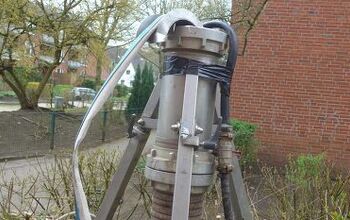

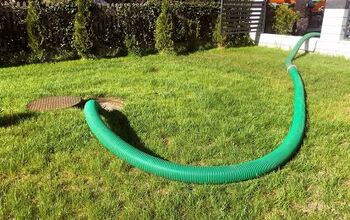


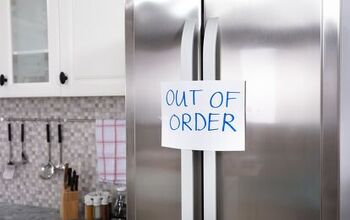

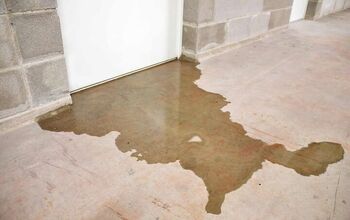

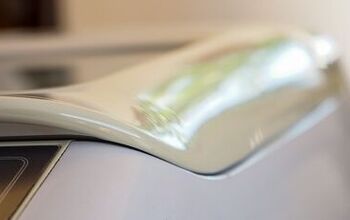





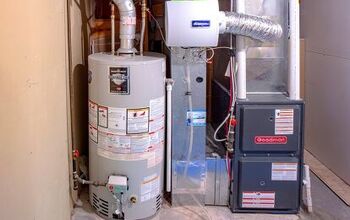

![Cost To Drill A Well [Pricing Per Foot & Cost By State]](https://cdn-fastly.upgradedhome.com/media/2023/07/31/9074980/cost-to-drill-a-well-pricing-per-foot-cost-by-state.jpg?size=350x220)